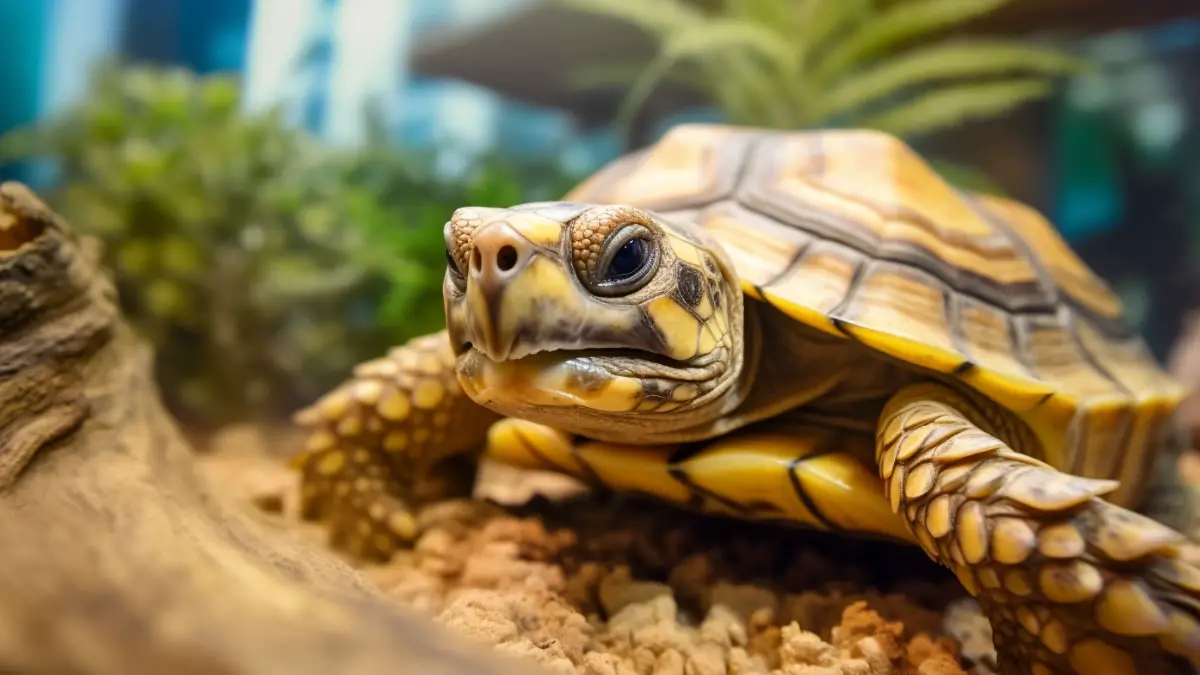What Does Tortoise Poop Look Like? – Texture, Color, Size, and Shape
Tortoises suffer from various diseases ranging from stomatitis to respiratory diseases, skin infections, and parasitic infections. Now, one way to tell if your pet animal is sick or not is by observing its poop. But what does tortoise poop look like?
Well, the droppings of a healthy tortoise look brown or greenish-brown in color. Its texture is solid and firm but maybe a little runny if your pet poops and urinates simultaneously. In addition, the poop has a mild smell and is a few inches long.
So then, what does the poop of a sick tortoise look like? Here is everything you might want to know about your pet’s droppings.
What Does Tortoise Poop Look Like?
Contents
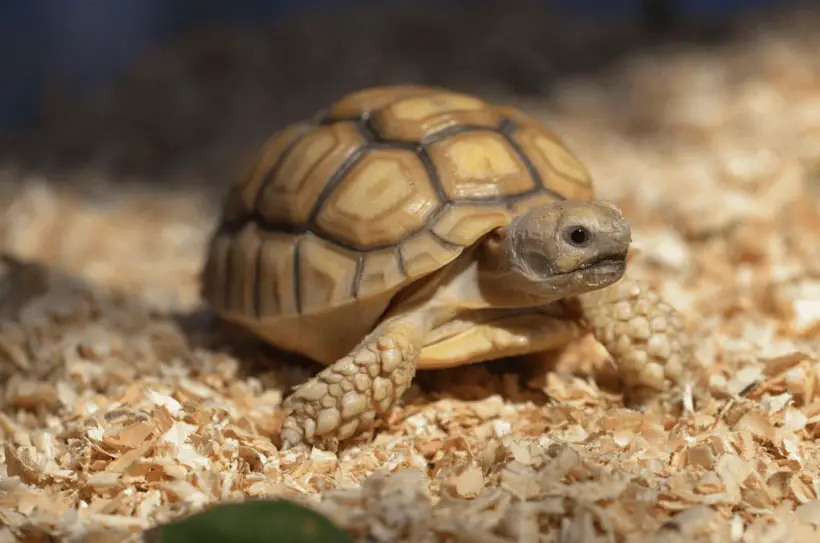
Depending on the tortoise species, size, age, and even diet, tortoise poop may look different. But generally, the droppings of a healthy tortoise usually exhibit the following characteristics:
1. Color
Although the color of a tortoise’s droppings may vary, especially based on the diet, they are usually brown to greenish brown. Sometimes, the poop may have white spots, which are urate deposits. This happens when the tortoise urinates and defecates simultaneously.
2. Size
The size of the tortoise’s feces ranges from a few centimeters to a few inches in length. Generally, the poop is about 0.2 inches long. However, some owners claim the size of the droppings is around that of the animal’s head.
3. Texture
Typically, tortoise poop boasts a solid and firm texture. However, sometimes it may look runny since these animals normally poop and urinate through the same opening. The wetness of the urine may make the poop a bit watery.
4. Shape
Tortoise poop is usually cylindrical or oval in shape. You may also find it a bit flattened or elongated.
5. Odor
Tortoise droppings have a mild odor. In fact, you may only smell the poop when you are very close to it. However, if you let the poop accumulate for too long, it usually has a strong and unpleasant smell.
Factors Influencing the Appearance of Tortoise Poop
The color, size, texture, odor, and even shape of tortoise poop may vary based on several factors. These include:
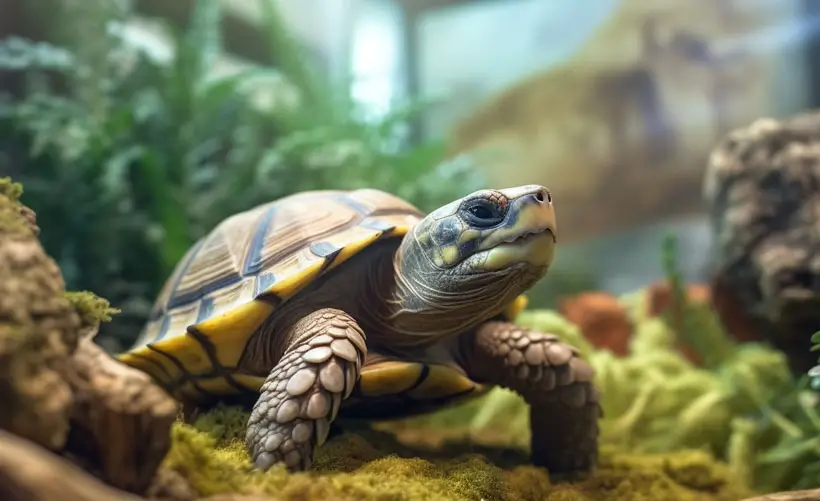
Diet
This is the primary factor that influences how tortoise poop looks. Different foods may result in variations in odor, consistency, and color of the droppings.
For instance, the poop may be more greenish in color if your tortoise is eating lots of leafy greens. On the other hand, if your tortoise diet lacks dietary fiber, the poop may be watery due to diarrhea.
Tortoise Species
Different tortoise species’ poop has slight variations in color, size, and texture. For example, the African Spurred tortoise poop is extra smelly and is usually dark green, brown, or nearly black in color. However, poop of other species has a mild smell that is hardly noticeable.
Age
Baby tortoises don’t eat much grass. Therefore, baby tortoise poop may have a solid black color and a thicker texture. On the other hand, adult droppings tend to be brown or greenish-brown. Similarly, younger tortoises excrete smaller droppings than their adult counterparts.
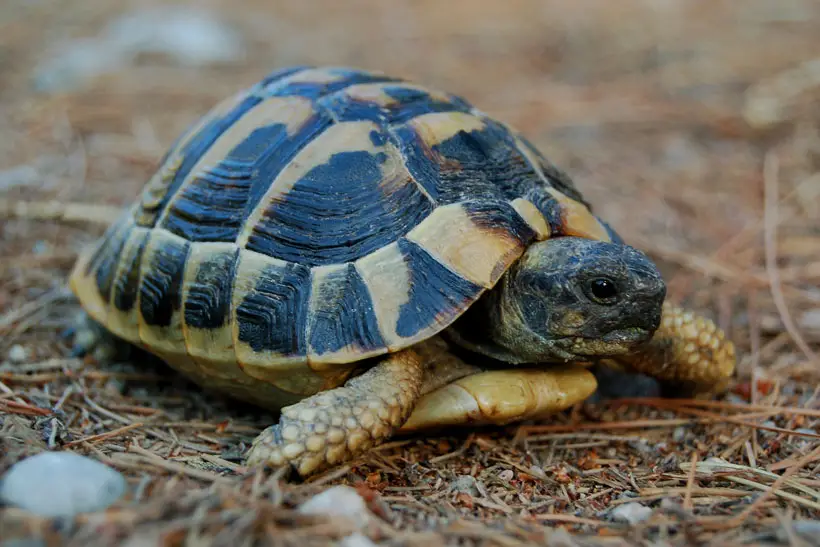
Hydration
Without adequate water to drink, tortoises risk dehydration. As such, their droppings may be drier and more compacted. However, if your pet is sufficiently hydrated, the poop should be well-formed and solid.
Health
Tortoise poop may also vary depending on the health of the animal. For example, the droppings may have a powerful odor or loose consistency if your tortoise is sick. Also, the poop may have reddish tinges, indicating an underlying health condition.
What Does Tortoise Poop Look Like When Sick?
Tortoise droppings may serve as an indicator of the animal’s good or bad health. So, below we will discuss what the poop of a sick tortoise looks like.
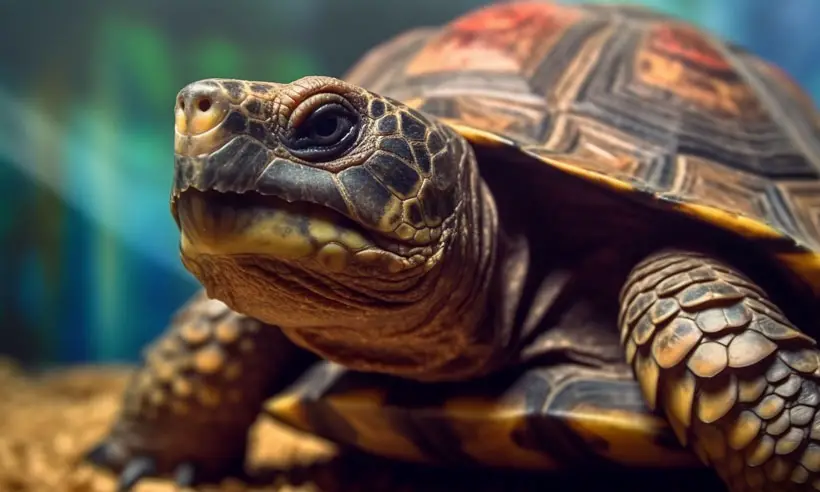
Bloody
Instead of appearing brown or greenish-brown, tortoise poop may have black or red discoloration. Or simply, the feces may be bloody. Generally, this is usually a sign of internal bleeding or other health issues.
Runny or Excessively Dry
Typically, normal tortoise poop is solid and firm. So, if the droppings become loose or runny, this could be a sign of digestive issues like diarrhea or parasitic infections.
The common parasites that infect tortoises are parasitic nematodes, roundworms, and tapeworms. On the other hand, if the feces appear excessively dry, your tortoise could be experiencing constipation.
Appearance of Undigested Food
Sometimes, tortoise feces may contain undigested food. This happens when your pet has digestive issues primarily due to consuming a low-fiber diet.
How Often Do Tortoises Poop?
Typically, healthy tortoises may poop daily or every two to three days. However, the frequency depends on several factors, such as the tortoise species, age, health status, and diet.
For example, a leopard tortoise may defecate one massive human-sized poop only once a week. On the other hand, an African Spurred or Sulcata tortoise poops every 2 or 3 days a week.
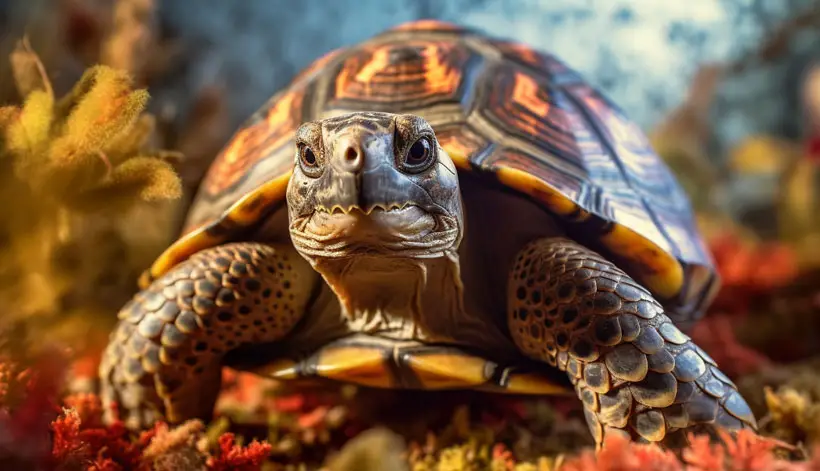
Similarly, baby tortoises typically poop every day. This is because they have a shorter gastrointestinal tract. Conversely, their adult counterparts may go for days without defecating due to their slow metabolism.
When it comes to diet, a high protein or caloric diet may cause your tortoise to poop more often than usual. This is because such a diet leads to digestive problems like diarrhea. However, a low-fiber diet will make your pet defecate less frequently due to constipation.
FAQs
Before we conclude, let’s check out some commonly asked queries regarding what tortoise droppings look like.
Most tortoise species usually defecate in their bath water. They tend to find the warm water soothing and relaxing, encouraging them to release their waste.
Typically, this happens when your pet is stressed or frightened because of being handled by unfamiliar people. It could also be because the tortoise feels safe and comfortable around you.
You must take your pet to the vet immediately. This is because your tortoise can be suffering from parasitic infections or diarrhea. In the case of diarrhea, feed your pet the proper diet and bathe it in warm water to avert dehydration.
Conclusion
A healthy tortoise usually defecates brown or greenish-brown poop that is firm and solid. The poop may be a few inches long with a mild odor and an oval or cylindrical shape. However, the appearance of tortoise poop may vary from one species to another.
In addition, age, diet, and tortoise health may influence how the droppings look. For example, baby tortoise poop may appear more blackish. Conversely, a tortoise consuming a low-fiber diet may defecate watery poop. In addition, when your tortoise is sick, it may excrete bloody, runny, or exceedingly dry feces containing traces of undigested food.

